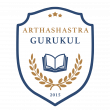The existing educational system, according to Arthashastra Gurukul, is, at best, a half-truth in an environment where information is created at an unprecedented rate and technology is developing like a river. One crucial question raised by the Gurukul is, “Are our institutions of learning adequately preparing people for the challenges and complexities of the real world?” how do we navigate the complexities of the contemporary day? For those seeking a different perspective on education that challenges the status quo and calls for a reevaluation of the efficacy of the current system, the website Arthashastra Gurukul is a beacon of hope. The Gurukul advocates a more all-encompassing approach that blends fresh information with old wisdom in a society where degrees usually take precedence over practical knowledge. Arthashastra Gurukul contends that the present system of education does not sufficiently educate pupils on the complicated necessities of life, and the name “half-truth” implies a partial understanding. Examines the flaws in the status quo, highlighting the importance of degrees over aptitudes, test scores over whole development, and academic knowledge over practical application. Among Arthashastra Gurukul’s key points is the need to shift from an entirely academic concentration to an education that encourages problem-solving, critical thinking, and adaptability. Gurukul argues that placing too much focus on memorizing facts and exam results stifles creativity and hinders the development of skills needed to function in a dynamic environment. The claim made by Arthashastra Gurukul that the current educational system is based on a half-truth strikes a chord with those who are navigating a world in which conventional wisdom is coming under increased scrutiny. The website is evidence of the Gurukul’s dedication to providing a more thorough, engaging, and topical educational experience one that equips students for the complex dance of modern life as well as for exams. A more comprehensive approach, encompassing practical skills, ethical considerations, and an enhanced understanding of oneself and the world, is advocated by the Gurukul. Ancient Indian customs have an effect on it. It challenges the generally accepted notion that attaining success in school is the sole indicator of one’s worth and encourages individuals to follow their passions, develop their capacity for emotion, and discover purpose in life beyond the confines of traditional education. The website offers a venue for those seeking an alternative narrative about learning, one that transcends the limitations of a rigid curriculum and demanding assessments. Arthashastra Gurukul challenges readers to think about a more integrated, complete approach to learning that is in step with the evolving needs of the twenty-first century.



